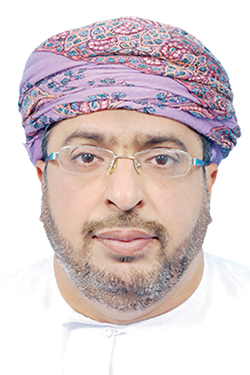

The world is expected to see more money laundering operations in the coming years due to the advent of new technologies, especially those relating to money transfer through e-banking. While technology has made life easier, it also requires follow-up and auditing in view of the confrontations between security and law enforcement authorities on one side and high networth individuals on the other. Corporate corruption will increase. Today, some people are exploited, especially the poor and the needy, which helps “scam artists” amass fortune through money laundering.
Money laundering involves crimes related to commercial activities such as fraud in weights, prices, knockoff goods and trade, and cover-ups, in addition to tax evasion, bribery, counterfeiting, forgery, piracy, extortion, kidnapping and armed robbery, among other things.
Money laundering and the war on drugs and terrorism will always remain a hot topic. Many experts have weighed in on this subject, including Keith Bulfin, an international expert on anti-money laundering.
In a recent lecture at the Muscat University, he recalled his experiences during his work in the field of finance and banking. He worked in the Australian investment banking industry as a mortgage broker in the 1980s and spent three years in a prison to get to know criminals.
He worked for the Federal Bureau of Investigation (FBI) to manage a secret bank targeting Middle Eastern countries and terrorist organisations. Besides being an adviser to the National Security Council in Mexico, he has worked with various foreign governments.
Bulfin spoke about his book, Undercover: A Novel of Life, in which he details his life as an undercover agent with deep knowledge of internal operations of Mexican drug cartels and their banking and financial transactions. He also shed light on the quantum of money laundered around the globe each year.
Citing a 2017 report from Scotland Yard, headquarters of Metropolitan Police in London, he said 4,629 criminal groups were operating in Britain.
He said there were frequent murders in London of rival gang members and groups, not to mention an estimated $2 trillion laundered from the Britain’s financial system in 2017.
Furthermore, Bulfin spoke about certain policies on illicit products such as drugs, weapons, money laundering, treason, forgery, child abuse, human trafficking and slavery.
He said there were several banks located in Geneva, London, New York, GCC, Switzerland and others where money is laundered, with the help of international personalities well known for laundering trillions of US dollars every year through thousands of informants at Customs, seaports, airports and banks.
Launderers also transfer money into projects by buying stocks, bonds, real estate, hotels and companies worldwide to give a legal touch to their transactions.
According to the index developed by countries and organisations around the world to combat the menace, money laundering has become rampant on a global scale in the past three decades.
This is because of the emergence of new technologies on one hand and the control exercised by some gangs on international businesses, as well as wars, migrations and corruption.
These issues require a banking mandate to monitor wealthy individuals, Bulfin noted, adding that some Middle Eastern countries have a hand in remittances made through money laundering.
He noted it was difficult for the governments to curb corruption among employees of those institutions unless laws are strict. He suggested daily monitoring which can limit such operations.
Such crimes require close monitoring of bank accounts and treating them with suspicion as well as tracking daily cash flows of banks.
Oman Observer is now on the WhatsApp channel. Click here



